
Sarzana Wandering Italy Blog
Una delle più importanti opere della storia dell'arte occidentale, il primo esempio di Christus Triumphans di cui abbiamo notizia (almeno stando alla datazione che compare sull'epigrafe, che fissa al 1138 la data di realizzazione), una croce dipinta fondamentale per lo sviluppo dell'arte in Toscana e dintorni, si trova nel Duomo di una cittadina.
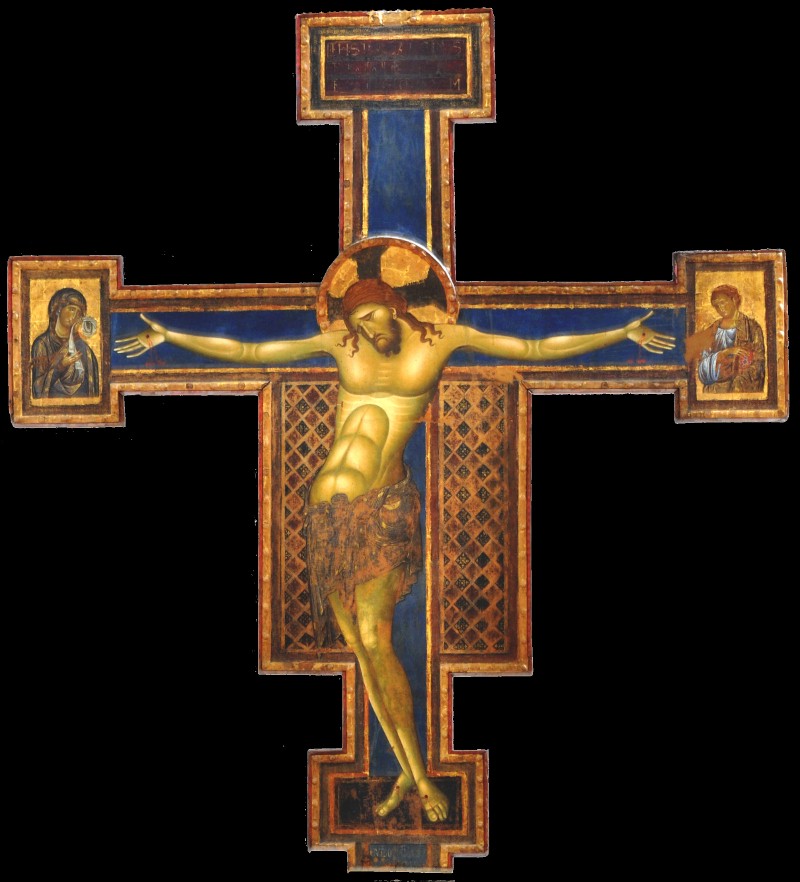
Le croci dipinte nascita ed evoluzione di un genere. Il Crocifisso di
La figura del Cristo è raffigurata come trionfante ( Christus triumphans ), un' iconografia derivante da avori di epoca carolingia, tipica dell'ambiente della Riforma gregoriana, che si ripresenta nelle altre croci dipinte di area centro-italiana: Lucca, Pisa, Firenze, Arezzo, Spoleto e forse Roma.

14 aprile 2014 Iconografia della Crocifissione dalle alla
Il Christus Triumphans. Nei crocifissi del XII secolo, Gesù è mostrato in posa rigida e frontale, con i piedi affiancati. L'esempio più antico tra quelli che si sono conservati è il Crocifisso del Maestro Guglielmo, artista attivo a Pisa nel XII secolo. L'opera (in gran parte ridipinta all'inizio del XIV secolo) fu realizzata su.

Pin on Arte Medioevale
It was painted by Maestro Guglielmo, literally "Master Guglielmo". We have no idea who was him, but that's how he signed himself as "Master". And this is actually one of the surprises since it was really rare during the Medieval time for an artist to sign his works of art.

LE CROCI DIPINTE , CRISTO TRIONFANTE/ CHRISTUS TRIUMPHANS, descrizione,…
Autore Maestro Guglielmo Titolo Christus triumphans Datazione 1138 Tecnica Dipinto Materia tempere Misure 300x210 cm Stato di conservazione. Le condizioni del dipinto sono abbastanza buone nonostante ciò fu rimaneggiata nella parte del corpo di Cristo e in parte ridipinta nel volto Provenienza Lunigiana, regione nell'entroterra ligure.
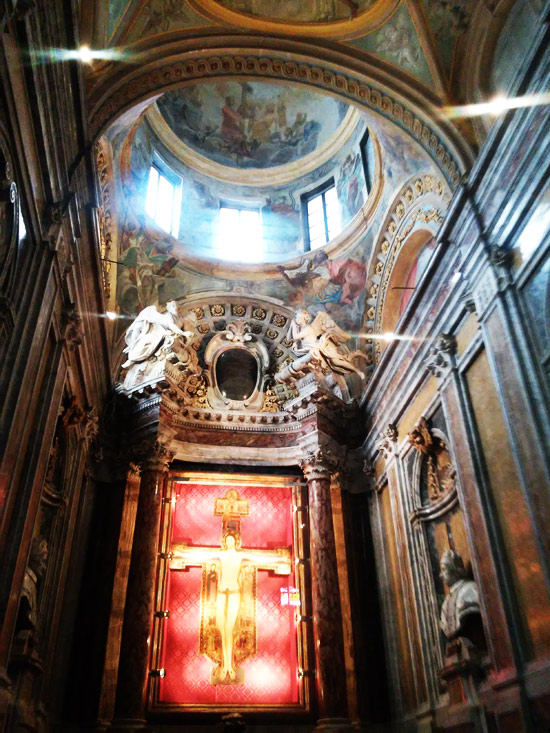
La croce di Guglielmo a Sarzana la prima croce dipinta datata della
Christ Triumphant (Christus triumphans), also known as the 432 Cross, tempera on panel, c. 1180-1200, 277 x 231 cm and Crucifix and Eight Stories from the Passion (Christus patiens), also known as the 434 Cross, c. 1240, tempera on panel, 247 x 201 cm (both in the Uffizi, Florence) A conversation with Dr. Steven Zucker and Dr. Beth Harris.

The History of Painting in Florence A Stylistic Analysis of Two
La rappresentazioni del Christus triumphans risalgono all' Alto Medioevo, durante il periodo Romanico, e questo modello iconografico rimase utilizzato per tutto il XII secolo. Si ritrova ancora fino alla seconda metà del XIII secolo e in qualche opera del XIV secolo. A partire dal XIII secolo subentrò il modello iconografico del Christus.

Christus triumphans fotografías e imágenes de alta resolución Alamy
Il Crocifisso di Mastro Guglielmo, esempio di Christus Triumphans, è una delle massime espressioni della pittura duecentesca.continua di blakman (9106 punti) 1' di lettura 4 / 5 (1) Mastro.

rosarydelsudArt News La Croce di Mastro Guglielmo detta anche Croce di
Il modello più antico rimane dunque il Christus triunphans, un Cristo vivo, con gli occhi aperti senza espressioni, trionfante sulla morte che allude alla resurrezione; un Cristo divino.
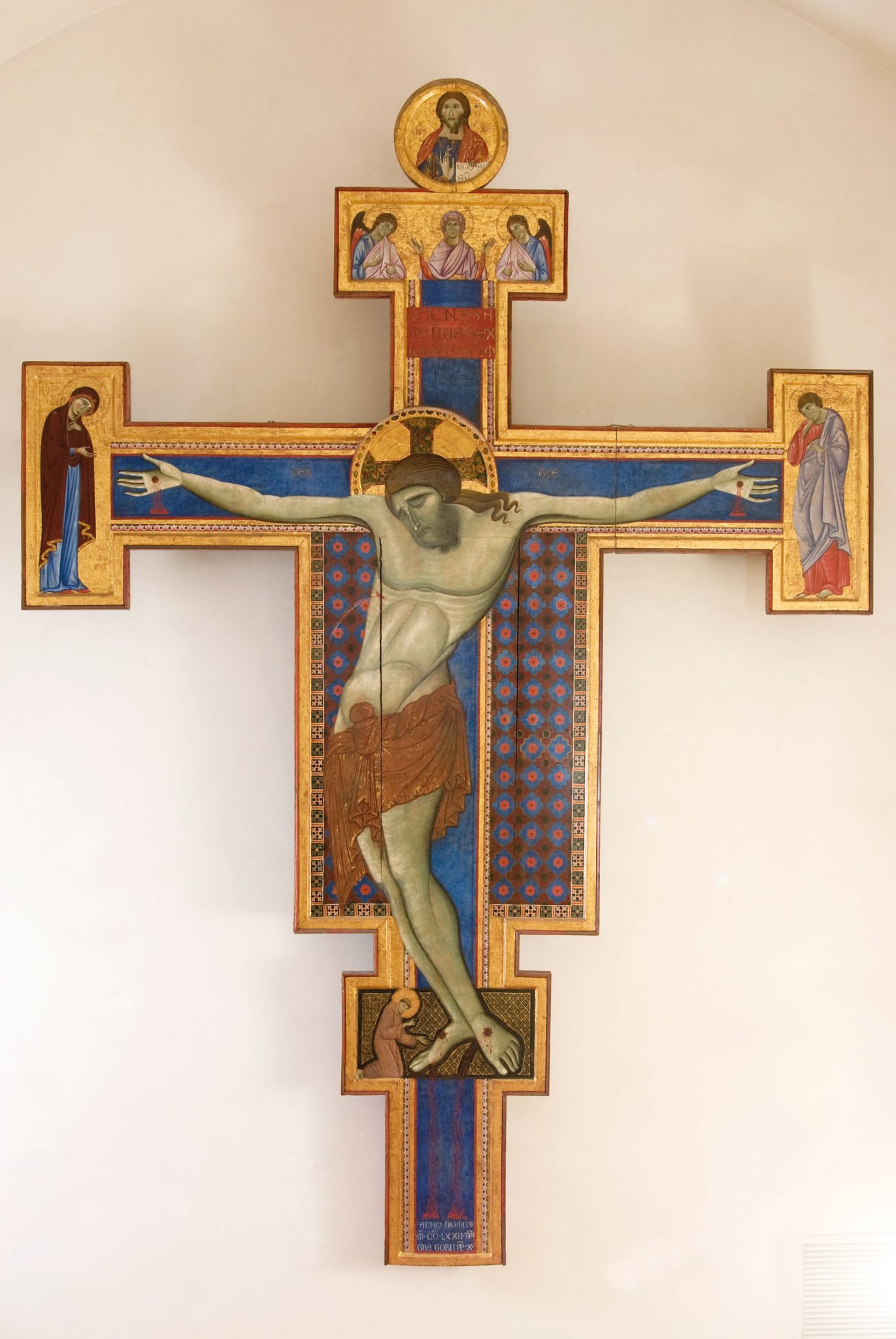
Francesco e la Croce dipinta a Perugia. L'evoluzione del Christus
Il Christus Triumphans di Maestro Guglielmo. by Francesco Fraioli 16 Settembre 2020. Sarzana è una splendida cittadina ligure della provincia di La Spezia nei pressi della Val di Magra e alle pendici del clivo di Sarzanello. Il suggestivo borgo medievale, scrigno di opere d'arte di storia antica, vede la presenza della Concattedrale di Santa.
CROCI DIPINTE
Inside you'll find the Cross of Maestro Guglielmo, dated 1138. The Cross of Maestro Guglielmoin the Cathedral of Sarzana (1138) serves as the oldest extant example of a monumental painted panel (dipintura) cross. This crucifix portrays Jesus as the Christus Triumphans.

rosarydelsudArt News La Croce di Mastro Guglielmo detta anche Croce di
Abstract. This article analyzes John Foxe's play, Christus Triumphans. At the beginning and at the end of his play, Foxe both frames and unframes the place of the stage. Asking for attentive silence, the Prologue demarcates a space for play, theatrical make-believe, 'ludi scenic'. But this demarcation is only provisional: it holds up only.
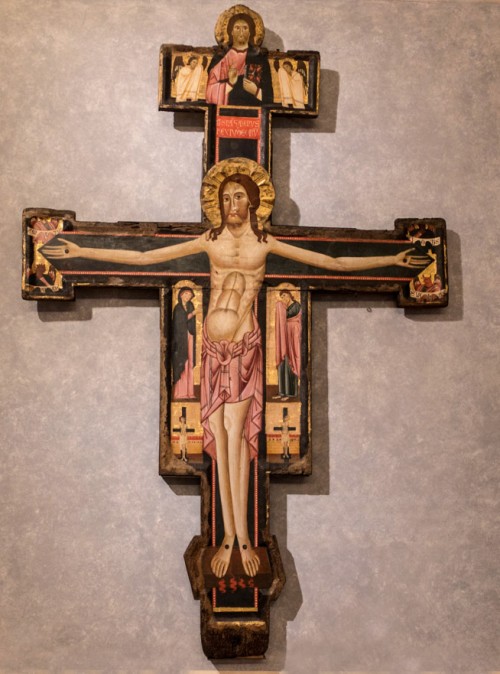
Papież Feliks III (Feliks II) (?492) papież święty, bezkompromisowy
This thesis deals with the increased use of the Christus Patiens iconography as a theological response to the Cathar heresy, a dualist and Docetist belief which was prevalent in the central region of Italy during the time of Francis of Assisi. The Italian duecento crucifixes that depict the saint at the foot of the cross are considered along.

GIOVANNI PISANO, IL CROCIFISSO DI SAN BARTOLOMEO A PISTOIA Lucca da
The crucifix from Sarzana by Mastro Guglielmo is a figure of the resurrected Christ painted in tempera on canvas, attached to a cross made of chestnut wood and is also the first known example of an iconography of the Christus triumphans typology. [1]
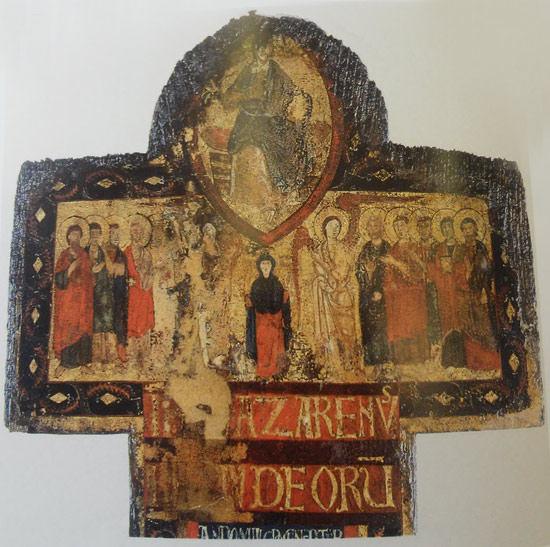
La croce di Guglielmo a Sarzana la prima croce dipinta datata della
In the later Middle Ages, a number of preachers and writers discussed a different type of Christ who suffered in the way that humans suffered. This was different from Catholic writers of earlier ages, who emphasized Christ's divinity and distance from humanity. Figure 16.3.2 16.3. 2: An example of a Christus triumphans (triumphant Christ.
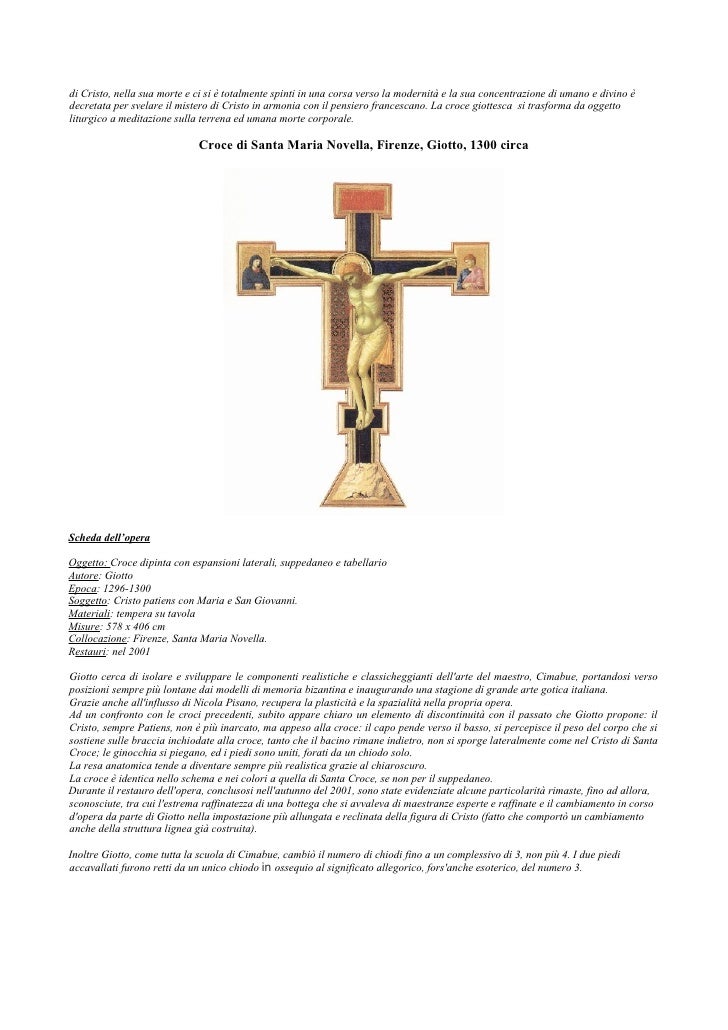
La crocifissione nelle croci dipinte
show that it was blue, and that Christ was portrayed as Christus Triumphans: clear highlights define the delicate lines and small closely-spaced strokes define the beard and hair tones tending toward light chestnut. The expression of the face is saturated with a subtle pathos not found in other Lucchese crosses. The lateral figures